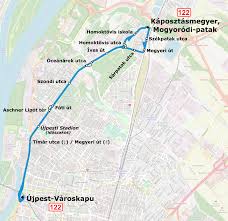
Introduction
Budapest, the capital city of Hungary, stands as a testament to the country’s rich history and vibrant culture. Often referred to as the “Paris of the East,” Budapest is renowned for its stunning architecture, picturesque views of the Danube River, and a thriving arts scene. The importance of Budapest extends beyond its beauty; it serves as a cultural and political hub of Central Europe, attracting millions of tourists annually and playing a significant role in regional affairs.
Historical Significance
Budapest is divided into two main parts—Buda and Pest—separated by the Danube River. Buda is characterized by its historic castle district, while Pest is known for its bustling city life. The city’s history dates back to Roman times, reflected in its ancient ruins and museums. The unification of the three cities—Buda, Pest, and Óbuda—in 1873 marked the beginning of modern Budapest. This historical significance is highlighted during many festivals and events, including the Budapest Wine Festival and the Spring Festival, showcasing Hungary’s rich heritage.
Cultural Attractions
The city is home to an array of extraordinary museums, including the Hungarian National Museum and the Museum of Fine Arts. Additionally, landmarks such as the Buda Castle, Fisherman’s Bastion, and the iconic Chain Bridge attract visitors with their breathtaking views and historical importance. Budapest’s thermal baths, like the Széchenyi Thermal Bath and Gellért Baths, are major draws for tourists seeking relaxation and a taste of traditional Hungarian wellness culture.
Modern Developments
In recent years, Budapest has seen a considerable transformation, embracing modern architecture while preserving its historical essence. This balance makes it an attractive destination for multinational businesses and startups, as the local government encourages innovation and investment in the city’s infrastructure. The ongoing development of public transportation and green spaces further enhances the quality of life, making Budapest an appealing city for both tourists and residents.
Conclusion
Budapest’s unique blend of history, culture, and modernity creates an inviting atmosphere for visitors from around the world. As the city continues to evolve, it retains its significance as a cultural and economic hub of Hungary. For anyone interested in exploring a city rich in diversity and history, Budapest is a destination that promises both adventure and enlightenment, making it a must-visit spot on anyone’s travel itinerary.



